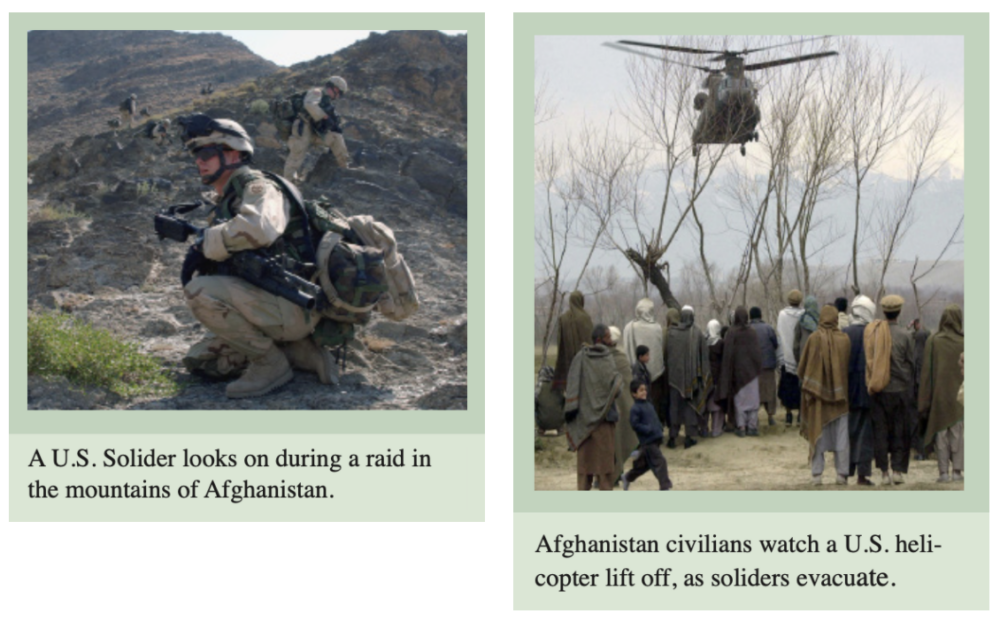
After nearly 20 years of American involvement, the United States has withdrawn its troops from Afghanistan, officially marking the end of the longest war in American history. This, however, has led to deadly consequences.
In February 2020, former President Donald Trump signed a peace treaty with the Taliban, in which it was agreed upon that America would withdraw its troops from Afghanistan within 14 months, according to the Washington Post. However, this action was not carried out under his administration, leaving President Joe Biden with the task to complete the deal or explore other options.
“[Donald Trump] campaigned for ending the war and in fact announced the decision on twitter without his military advisors being aware that it was coming,” government teacher John Carmichael said. “Biden campaigned to end the war as well. The reason both campaigned on this position is a majority of Americans wanted the war to end.”
According to the Pew Research Center, the majority of American adults said the decision to withdraw troops from Afghanistan was the correct one. Not only that, but most Americans agree that funds should mostly be spent on direct American needs, explaining Biden’s call to remove the United States from foreign battles and instead focus on our own country.
“The cost over 20 years was [over two] trillion dollars. That results in about 300 million [dollars] per day for 20 years,” Carmichael said.
Despite previous polls, Pew Research Center found that an overwhelming 69 percent of Americans said the Biden administration did a poor job of handling this situation. Almost immediately after the final American troops were withdrawn, the Taliban, an organized Islamic rebel group, took over Afghanistan. The Biden administration faced large criticism over this since the Taliban is widely known for not enforcing democratic ideals, which was one of the changes the United States was trying to promote during their 20-year involvement in Afghanistan.
“The collapse of the Afghan government occurred faster than anyone expected,” Carmichael said. “It took approximately 11 days, [but] most experts thought it would take 60-90 days for the Afghan government to dissolve.”
As a result of the Taliban takeover, many Afghan citizens attempted to flee their country in fear of living a life without much freedom, particularly women. According to AP News, more than nearly 130,000 refugees have been evacuated over the past few weeks, as countries have joined forces to help as many people as possible. In fact, Ohio Governor Mike Dewine recently announced that Ohio would be receiving 855 Afghan refugees, with 345 of them being placed in two resettlement agencies in Columbus.
“Overall, the situation could have been handled a lot better, and we could have had a better plan as far as supporting the innocent people who are involved,” senior Meghan Moser said. “It’s not a good situation for anyone.”
Recently, the Afghanistan war has been compared to the Vietnam War. While the Vietnam War lasted for approximately 10 years, according to the Washington post, the main comparisons have been made due to how both wars ended.
“Neither war was declared and so that is a common comparison. A rebel group defeated [the] American military in both conflicts as well,” Carmichael said.
After this chain of events, many Americans are left wondering what’s next for the country. In the past, the United States has not been afraid to get involved militarily in foreign countries. However, the results of the Afghanistan war may change that.
“[The United States] will likely pull back somewhat and become slightly more isolationist. However, China, [North] Korea and Iran will all have to be dealt with due to their growing military power,” Carmichael said.


